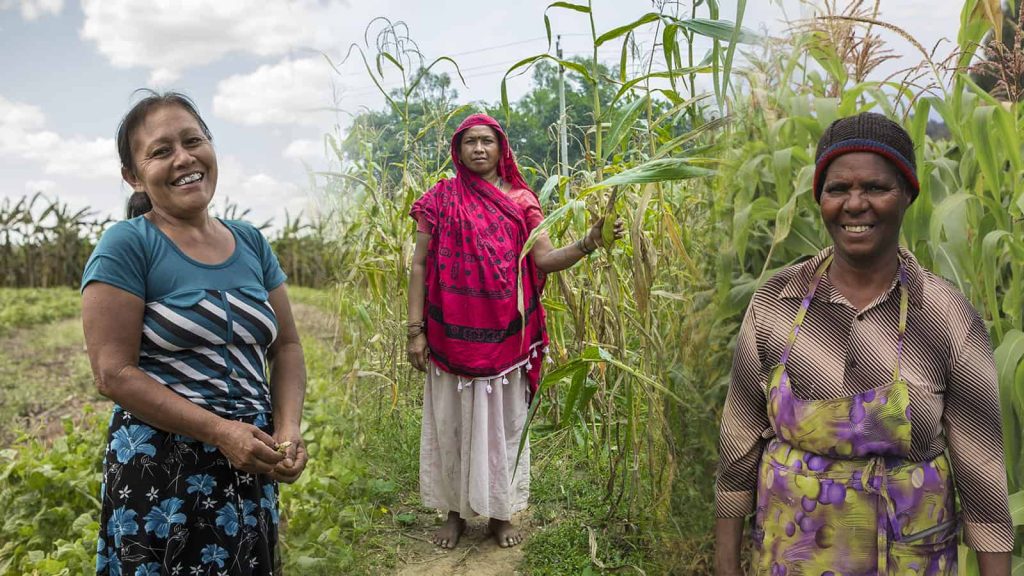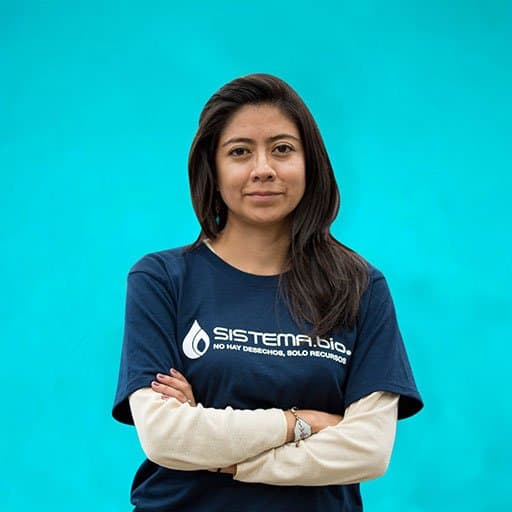
Xunaxi Cruz
Communications Director
I chose to write today, on the International Day of Rural Women, because it is a subject I’m passionate about and with which I identify. I often see my family’s history reflected in the 104,000+ families that use a Sistema.bio digester, as well as in our network of female sales agents. While I didn’t grow up working the fields as my grandmothers did, what I am today is linked to seeds, maize fields and soil.
My grandfather passed away a couple of days ago, a 101 man who was a farmer his entire life. My grandfather’s passing led me to reflect on how transcendent his life was on the history of the women in my family.
My grandparents had 4 girls (no boys!) in the 50’s, a time in which being a woman (especially a rural woman from the South of Mexico) meant very specific roles: becoming a mother, looking after your children and your husband, working the fields, caring for the animals, selling produce and preparing meals. All without any pay —except for whatever your husband, father or brother decided to give you. Curiously and sadly enough, this is far from being different from today’s reality for many women around the world.
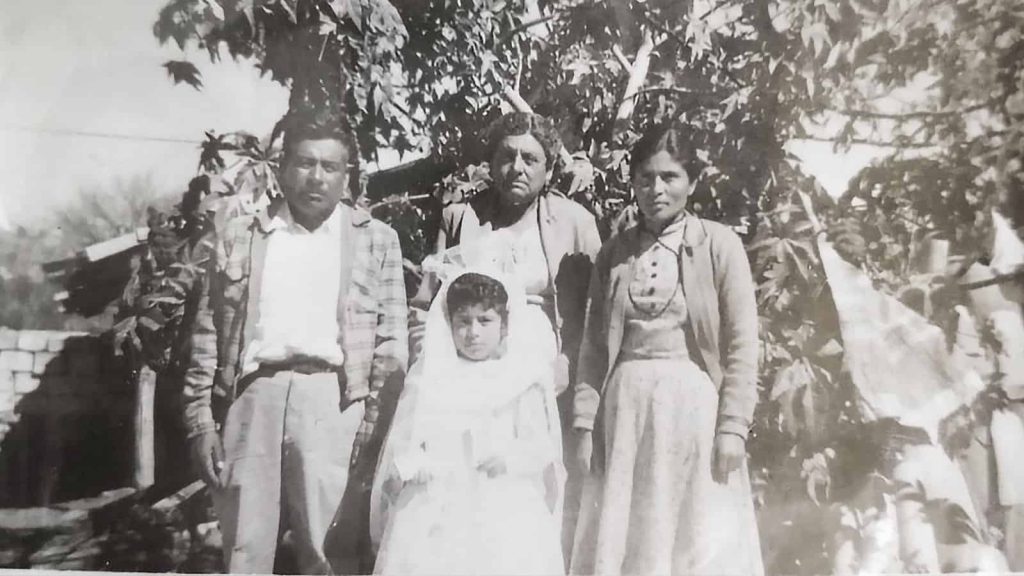
While my mother was destined for those roles, before the age of ten she knew that wasn’t what she wanted for her own life. After finishing her basic education, and with my grandmother’s help, she convinced my grandfather to let her and her sisters continue with their education. And my mother didn’t stop there: she wanted a career where she could work and be economically independent. My grandfather used to say, “I said yes, even though it was frowned upon by our town. I thought it would be good so that my daughters had different opportunities in life —that’s why I wanted them to continue with their education.”
In my experience, gender equality begins by untying roles from genders, and recognizing that even today, when we speak of gender equality, we talk about unequal social, economic and cultural conditions that women face just because of our gender. And even though many of the said conditions affect all of us, we must recognize that there are some subgroups that are more vulnerable than others.
Women who live in rural areas, especially in the developing world, are a clear example of a group with a particularly high vulnerability because of the challenges they face when it comes to access to resources and services that they have a right for, such as social security, health, work, paid work, education, land ownership, access to energy and financing services, to mention just a few.
Historically, rural women have been and remain to be key agents in our fight for food security, in our struggle to end poverty and malnutrition. According to FAO, they represent between 60 and 80% of the world’s agricultural workforce. Yet, the transcendence of their work as food providers, as well as their role in local economies and the wellbeing of our social fabric, goes unrecognized.
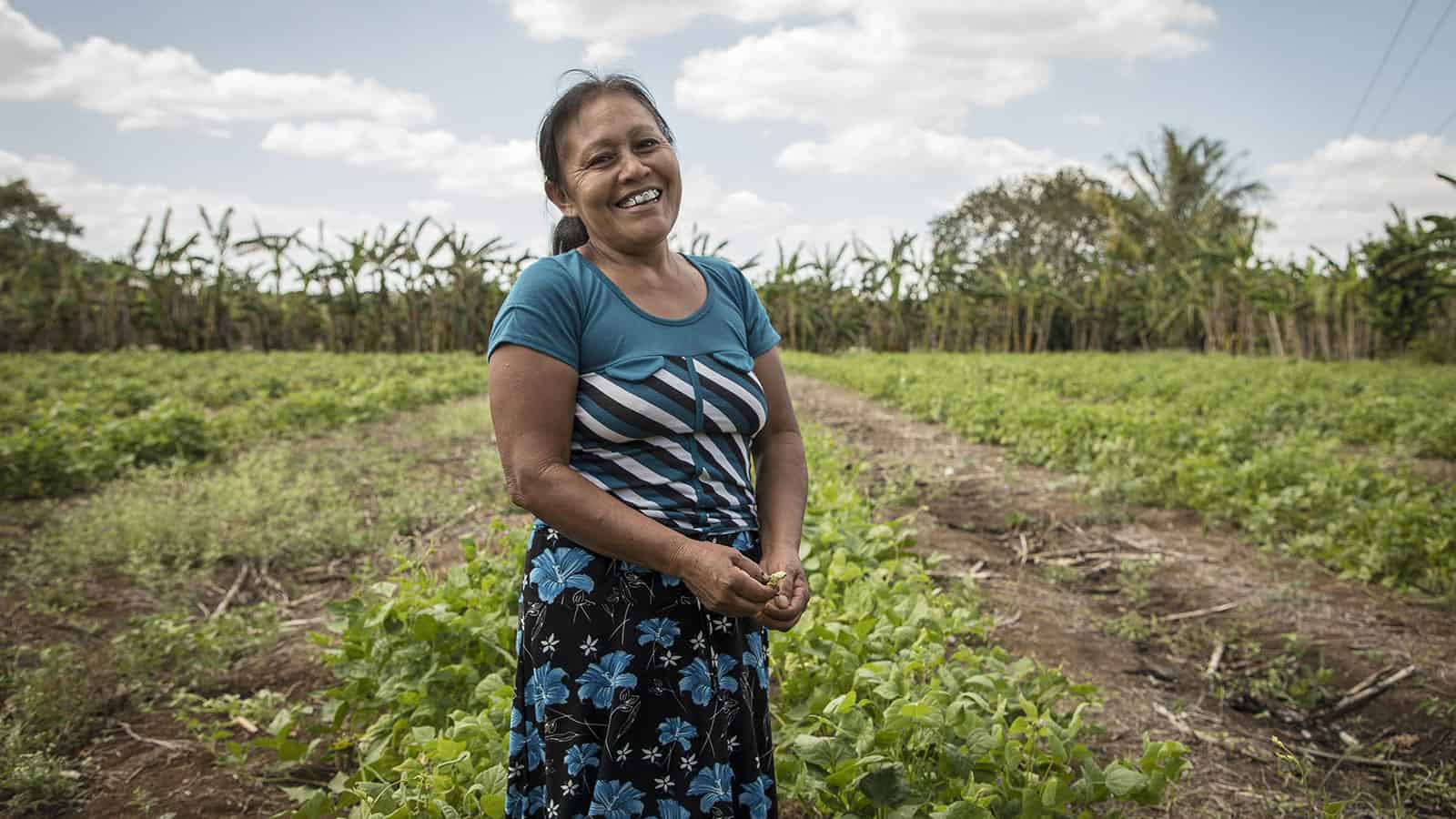
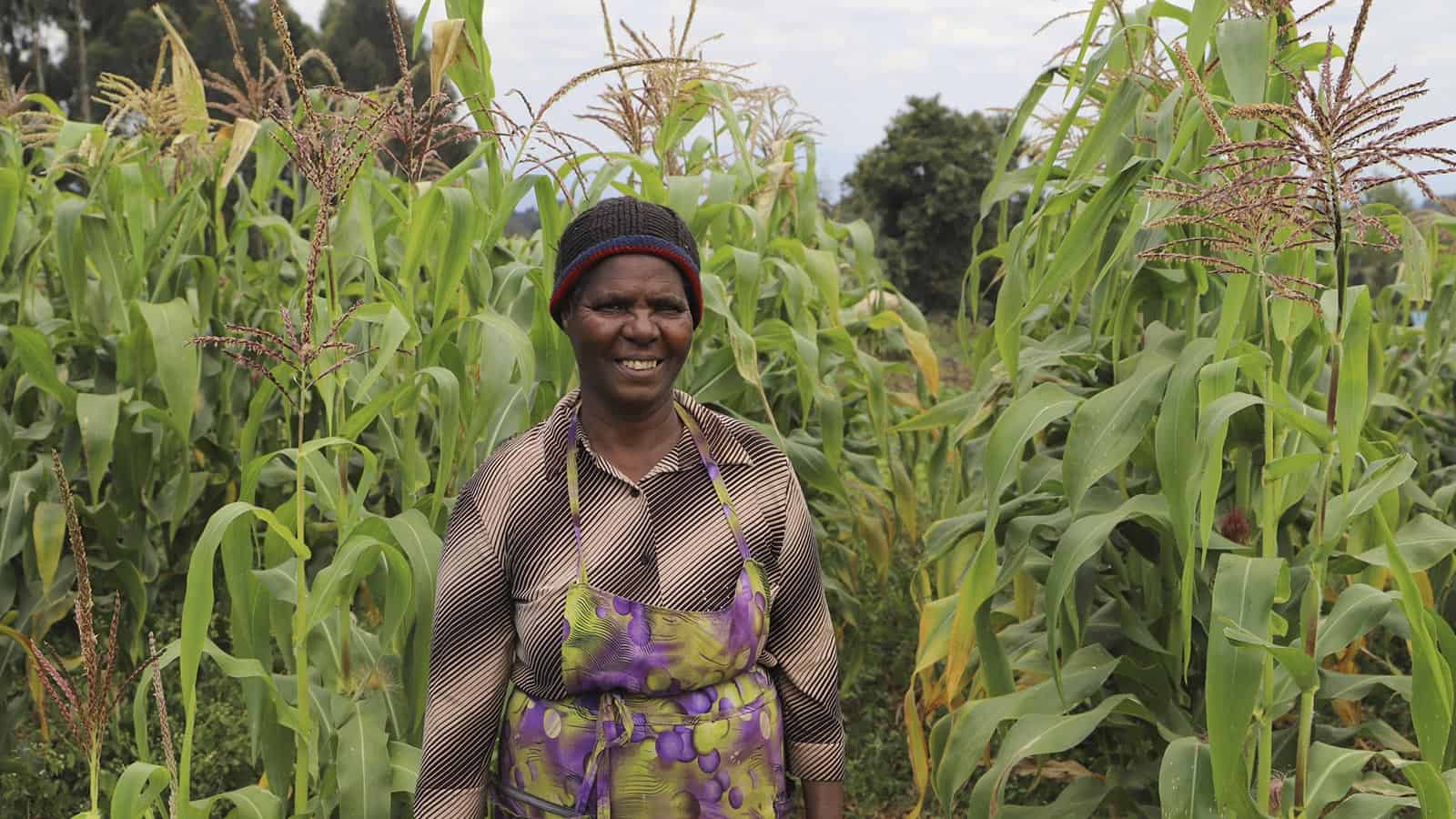
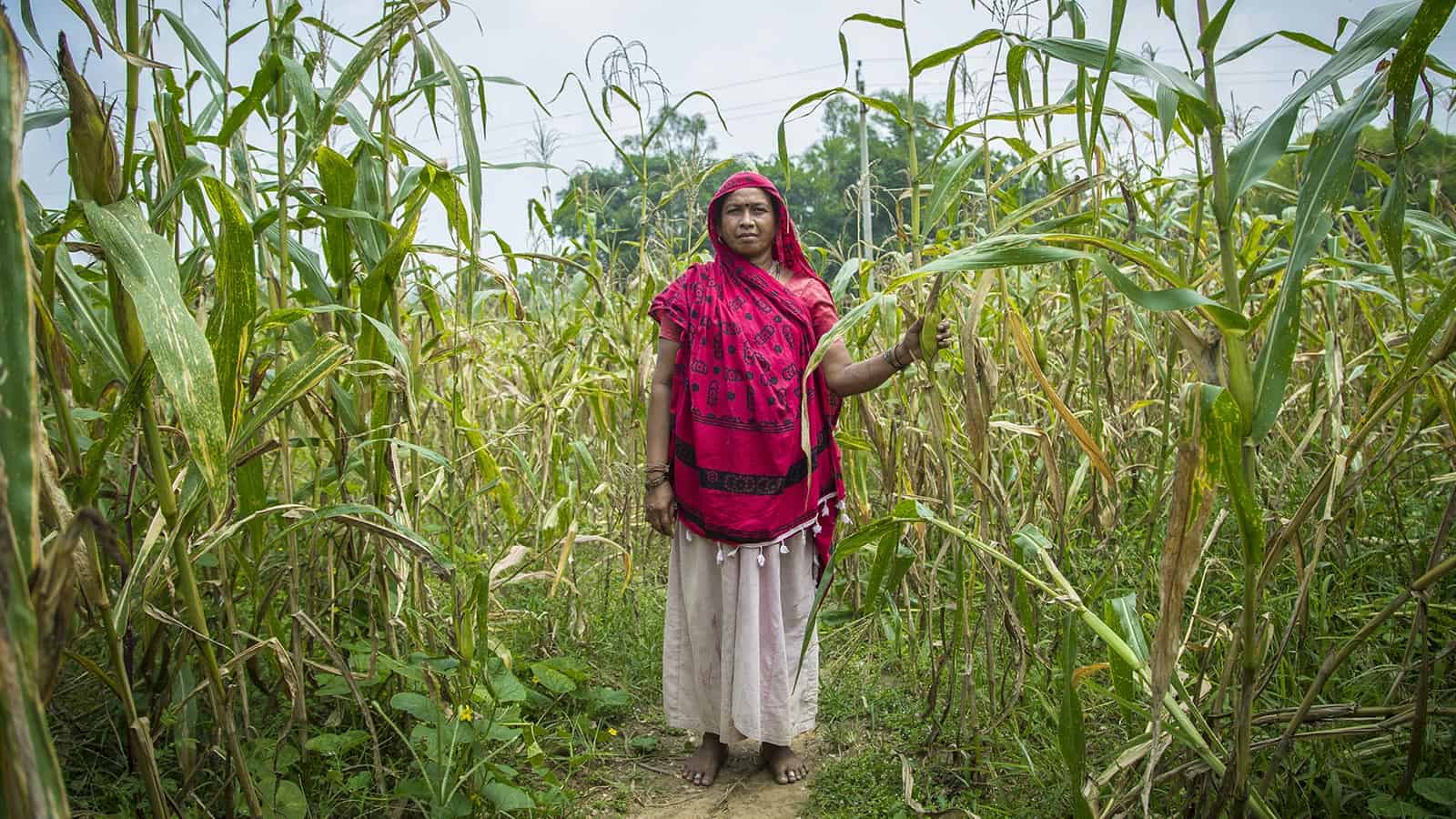
Previous
Next
In 2020 we’ve had to add COVID-19 and its effects on the lives of rural women to the equation. We have seen and tracked how, in times of crisis, women are more affected than our male counterparts. Therefore, there is an urgent need for all of us to act quickly and mitigate the effects of this sanitary crisis on the lives of women in general and, specifically, women in rural areas.
How Sistema.bio contributes to minimizing the effects of COVID-19 on the lives of rural women
Sistema.bio has always had an interest in reducing the gaps in gender roles, which is why we have worked with Shell Foundation, Value for Women and Alpha Mundi in several research projects to understand the challenges our users and female workers face. The results of these studies have given us a framework to add different programs and actions to our intervention model. Today I want to share some examples on how Sistema.bio contributes to improving the quality of rural women’s lives.
For our users
1. By guaranteeing access to energy and organic fertilizer:
Biodigesters are a source of energy and fertilizer, and it is thanks to them that our users in Africa, LATAM and India have had guaranteed access to a cost-free fuel source. They also eliminate the need to move and be in direct contact with people, which helps avoid contagion of COVID-19 among family members, and especially among the women and children that are usually in charge of collecting firewood.
2. By creating opportunities for additional sources of income:
Since economic activity slowed down due to the pandemic, some of our users created new sources of income through biogas. For example, female users who used to live off livestock decided to dive into different sources of income by processing different products and offering takeout food services.
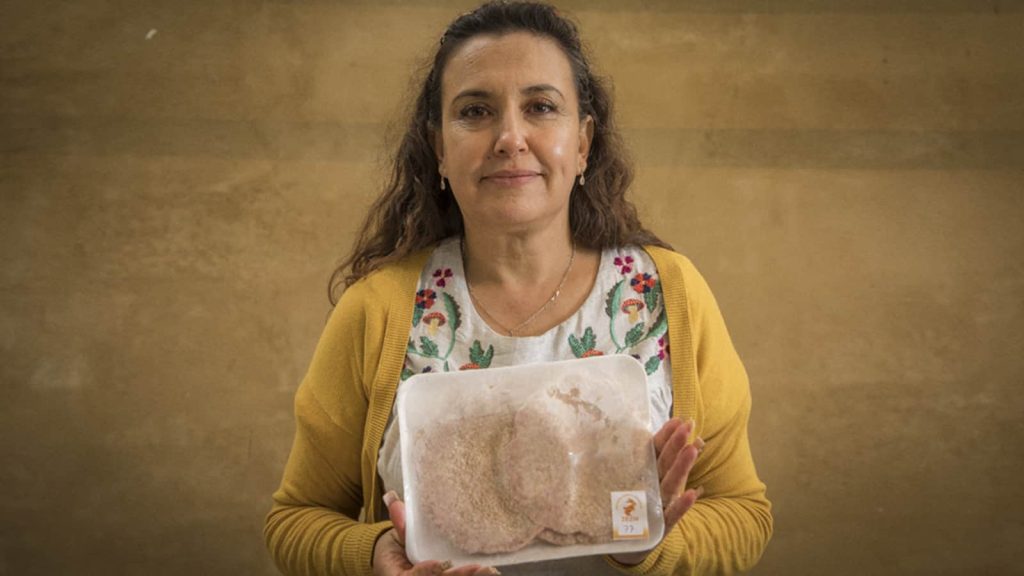
3. Through our financing program:
All our female users can apply to our financing program. The program includes financing for biodigesters, cookstoves, water heaters and any other biogas equipment, therefore giving users opportunities for accessing our technology while adapting to their economic situation.
For our female staff, sales agents and promoters
1. Workload distribution:
We created a flexible working system, based on results instead of working hours, for our rural offices’ staff, keeping in mind that the workload of some of our female teammates has increased due to the pandemic, in matters of homekeeping, children’s education and care work.
2. Female sales agent recruiting program
In a joint effort with EEP Africa, we have created a program to reach a balanced sales team in Kenya. Through this program, during the crisis we managed to offer job opportunities to 100+ people, half of which were female farmers, giving them a source of income through the most critical months. The program is still underway, and we are now in the process of replicating it in Mexico.
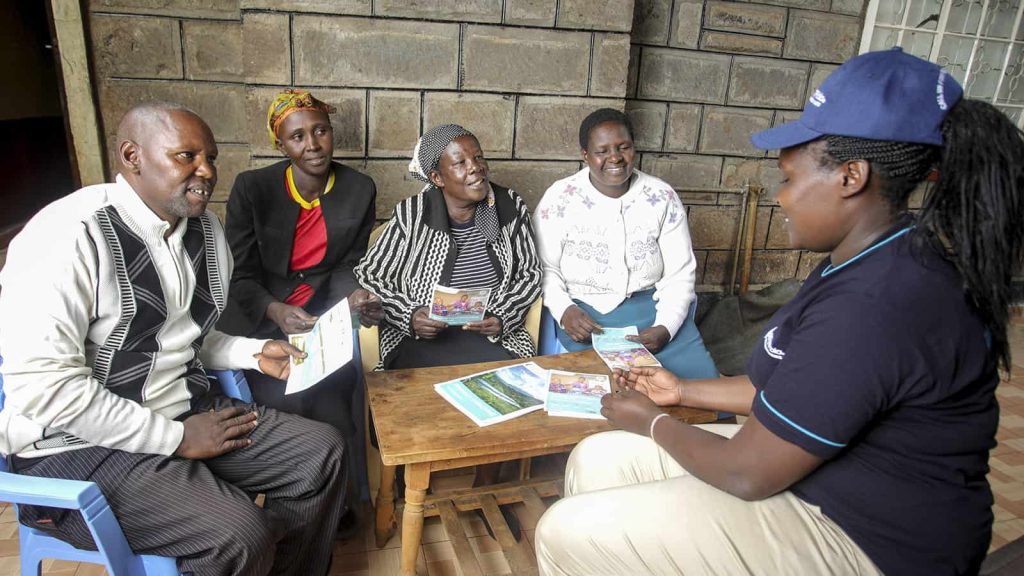
3. Sales training to empower women:
We created this program recognizing that a high percentile of our female sales agents haven’t had the opportunity to access higher education and/or professional training. The goal is for said women to gain self-confidence as professional women, while also developing new skills that can help them create work plans that will in turn allow them to fulfil their personal and professional goals.
4. Training and mentoring program for female Sales Managers in Mexico:
We have also created a mentoring program for young female teammates living in rural areas that can help them accelerate their professional growth in sales leadership. The program works through weekly mentorship sessions with women in our Global Leadership team and our Central Office where we touch on subjects such as leadership, professional competencies and the empowerment of young women in the workplace.
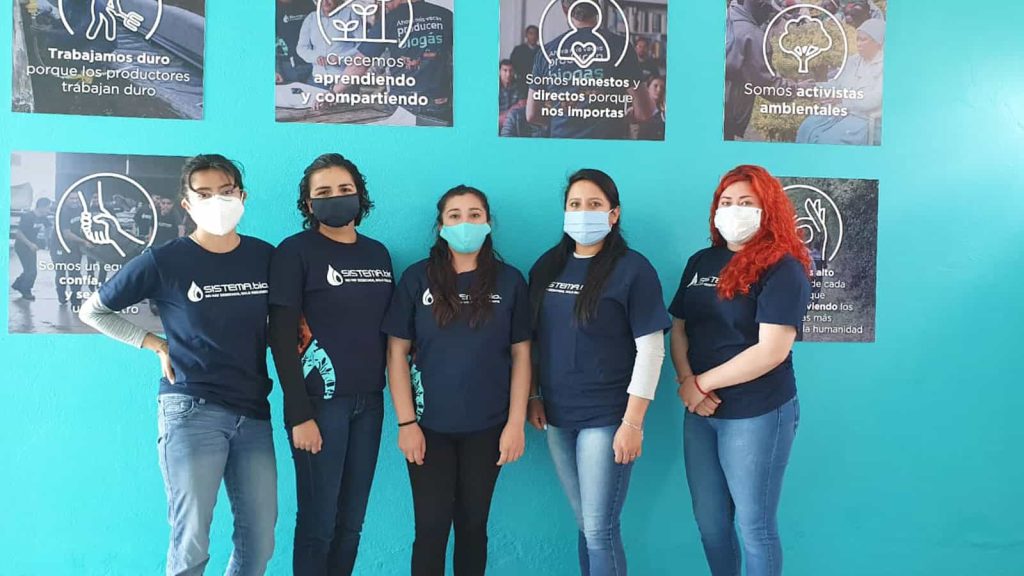
There is yet a long way to go in matters of gender equality, and especially in the rural sector. The first step is to acknowledge how serious and relevant the gender gap is. This is a struggle we ALL must fight for, not only women. The achievements we’ve accomplished have come through due to the many women who have led by example, but always with the support of women and men like my grandfather, who have recognized inequalities and worked hard in helping build better, more equal living conditions for women and girls in our societies.
